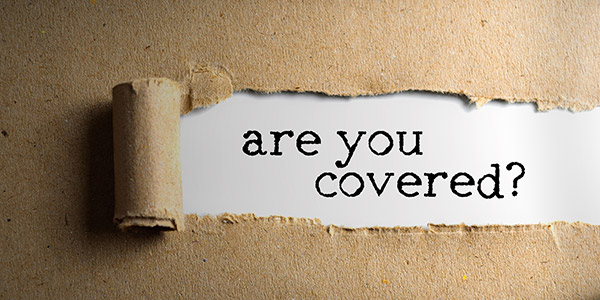Homeowners
Is Your Home Properly Insured?
October 3, 2018
"It's not what happens to you, but how you react to it that matters." It was good advice when Epictetus (55-135 A.D.) said it in Roman times, and those sage words may be even more applicable today, given that 2017 was the costliest year on record for natural disasters in the United States.
How would you react and recover from a natural disaster? You have homeowner's insurance, but is that enough?
Insurance, of course, can't prevent damage or even disasters from occurring, but it can reduce the financial impact for you. Should your home be destroyed or seriously damaged, it could give you the means to entirely rebuild and get your life back on track, as much as possible.
Fire, floods, tornadoes, and earthquakes typically strike without warning. With storms and hurricanes, you may have some forewarning but there's little you can do to prevent damage if you are directly in Mother Nature's path. However, if you arm yourself with optimal insurance policies, you may be able to protect yourself from the financial devastation these disasters often leave behind.
Homeowner's Insurance
If you plan to finance your home with a mortgage, your lender will require that you carry homeowner's insurance to protect their collateral. You usually can't close on a home until you've provided your lender with proof of insurance. Therefore, plan to obtain a policy well in advance of your closing date.
Most standard policies cover four distinct areas:
- Dwelling: The structure of your home, including your garage and built-in appliances.
- Personal property: Clothing, electronics, furniture, etc. Valuable jewelry, paintings, and other highly valued items may require a separate policy or rider.
- Liability: In the event, that someone is injured on your property.
- Additional living expenses: Temporary accommodations if your home is uninhabitable.
Certain events, such as earthquakes or floods, are excluded from standard policies.
The amount of coverage you believe you'll need may boil down to your personal risk assessment and what you can afford.
There are three primary kinds of policies – listed here from the least expensive to the most expensive – to choose from:
Actual Cash Value (ACV)
Compensation is based on the market value of your home, minus depreciation. In other words, if you bought your home new, but your roof is now 10 years old, your insurance carrier will deduct the roof's wear and tear from your payout. If your home is destroyed, ACV coverage likely won't cover the entire cost of rebuilding your house. ACV coverage also excludes the value of your land.
Replacement Cost Value (RCV)
Although more expensive, Replacement Cost Value provides greater peace of mind. If your home is destroyed, RCV reflects the estimated costs to rebuild it. Even these policies, however, are subject to maximum limits.
Guaranteed Replacement Cost (GRC) / Extended Replacement Cost (ERC)
This premium policy provides guaranteed reimbursement for a certain percentage above your home's replacement cost. In the event of labor or material shortages in hard-hit disaster areas, this policy will largely protect you from inflationary building costs.
Flood Insurance
Flood damage requires a separate policy usually backed by the National Flood Insurance Program (NFIP), although a few private insurers provide it independently. Only about 12 percent of homeowners had flood insurance in 2016, according to the Insurance Information Institute.
Typically, if you live in a high-risk flood area, you're required to carry flood insurance. Indeed, there's a roughly one-in-four chance that a home in a high-risk zone will flood. Those living in moderate-to-low-risk areas are not required to carry flood insurance, although residents in these areas have filed about 25% of all NFIP claims.
To see if you live in a flood zone, visit https://msc.fema.gov/portal/home. If you need an agent, call the NFIP at 888-379-9531 or visit floodsmart.gov.
While a good flood insurance policy can be a financial lifeboat, its coverage is not all-inclusive. If a pipe bursts inside the home or the toilet overflows, the damage is not covered. Also, to be considered a flood, water must cover at least two acres or have affected at least one other property.
Hurricane and/or Tornado Insurance
Hurricanes and tornados are very different kinds of storms, but insurance companies often classify them as windstorms, which are usually covered under homeowner policies.
In the storm's aftermath, your homeowner's policy will likely reimburse you (to a greater or lesser extent depending on the terms of your policy) for the loss of your home and all your personal property inside the home and include a "loss of use" clause that pays out if you are forced to live off-site.
Many policyholders living in states at greater risk of hurricanes may have to pay a hurricane deductible, apart from their normal homeowner's deductible, before being reimbursed for their claims.
Be aware that if a storm blows over a tree and smashes your car, your vehicle likely won't be covered under your homeowner's policy. A comprehensive automobile policy may cover your loss, however.
Indeed, verify with your agent what coverage your homeowner's policy provides for tree removal after a windstorm, especially if you have a yard full of them.
Earthquake Insurance
According to the U.S. Geological Survey, the U.S. has about 20,000 earthquakes a year, yet no state requires earthquake insurance. Today, in earthquake-prone California, about 10% of the state's homeowners carry it.
The high cost of earthquake insurance is often cited as the reason for not purchasing earthquake insurance. Depending on a handful of factors – where you live, the age of your home, proximity to fault lines, soil type, etc. – rates in California can range from 0.50 per $1,000 of coverage to $1.75 per $1,000 of coverage, which can quickly add-up in areas where median real estate prices are high.
Compared to standard homeowner's insurance, earthquake policies also contain a steep deductible, which is the amount subtracted from your claim payment. Insurers will deduct between 10% and 20% of your dwelling coverage limit.
In California, the law requires home insurance companies to also provide earthquake coverage. Golden State residents can also buy coverage through the California Earthquake Authority.
***
If you can't bear the thought of being wiped out financially by a natural disaster, then making monthly insurance payments to help you recover from a catastrophic event may be an investment well worth making. You may make payments for years without ever collecting on a claim, but that may be a small price to pay for knowing you and your family should be financially protected.
As always, consult a licensed insurance agent.





 Smart Moves Start Here.
Smart Moves Start Here.